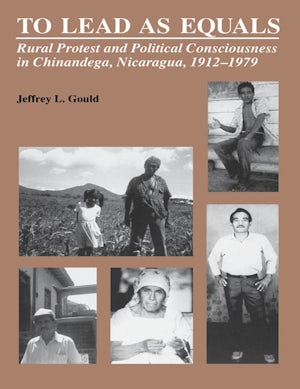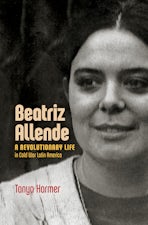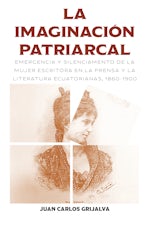To Lead As Equals
Rural Protest and Political Consciousness in Chinandega, Nicaragua, 1912-1979
By Jeffrey L. Gould
392 pp., 6.125 x 9.25, 15 illus
-
Paperback ISBN: 978-0-8078-4275-1
Published: September 1990 -
E-book EPUB ISBN: 978-1-4696-1607-0
Published: January 2014 -
E-book PDF ISBN: 979-8-8908-6585-4
Published: January 2014
Buy this Book
- Paperback $60.00
- E-Book $29.99
For Professors:
Free E-Exam Copies
According to Gould, when Anastasio Somoza first came to power in 1936, workers and peasants took the Somocista reform program seriously. Their initial acceptance of Somocismo and its early promises of labor rights and later ones of land redistribution accounts for one of the most peculiar features of the pre-Sandinista political landscape: the wide gulf separating popular movements and middle-class opposition to the government. Only the alliance of the Frente Sandinista (FSLN) and the peasant movement would knock down the wall of silence between the two forces.
About the Author
Jeffrey L. Gould is assistant professor of history at Indiana University.
For more information about Jeffrey L. Gould, visit
the
Author
Page.
Reviews
"Students of Nicaragua will find this book useful for its documentation of the emergence of the Somoza regime, and its striking revisionist portrayal of the relationship between the Somoza power elite and popular struggles for land, workers' rights, and gradually, political power."--Latin American Anthropology Review
"A rare book... an engaging ethnohistorical study of rural political protest in northwestern Nicaragua during this century."--American Ethnologist
“In rich and extraordinary detail, Gould has presented a previously unexplored aspect of Nicaraguan political history, the existence of an active tradition of rural resistance … The view from Chinandega casts new light on both the Somocista state and on the Sandinista Revoulution, but most importantly, it introduces us the extraordinary lives and struggles of the campesinos ... This is a worthy companion to John Womack’s Zapata and the Mexican Revolution.”--William Roseberry, in International Labor and Working Class History
"Essential reading for anyone interested in Third World peasant or labor movements, and it makes a valuable contribution to understanding the origins of the Nicaraguan revolution."--American Historical Review
"To Lead as Equals reconstructs, virtually from scratch, major features of modern Nicaraguan history with the use of oral testimony, sugar estate and newspaper records. . . . A remarkable achievement."--Lowell Gudmundson, University of Oklahoma
"This is an outstanding piece of historical research and writing. The author has great sensitivity and respect for local ideology and culture. His use of oral historical sources is impeccable."--Florencia E. Mallon, University of Wisconsin-Madison




